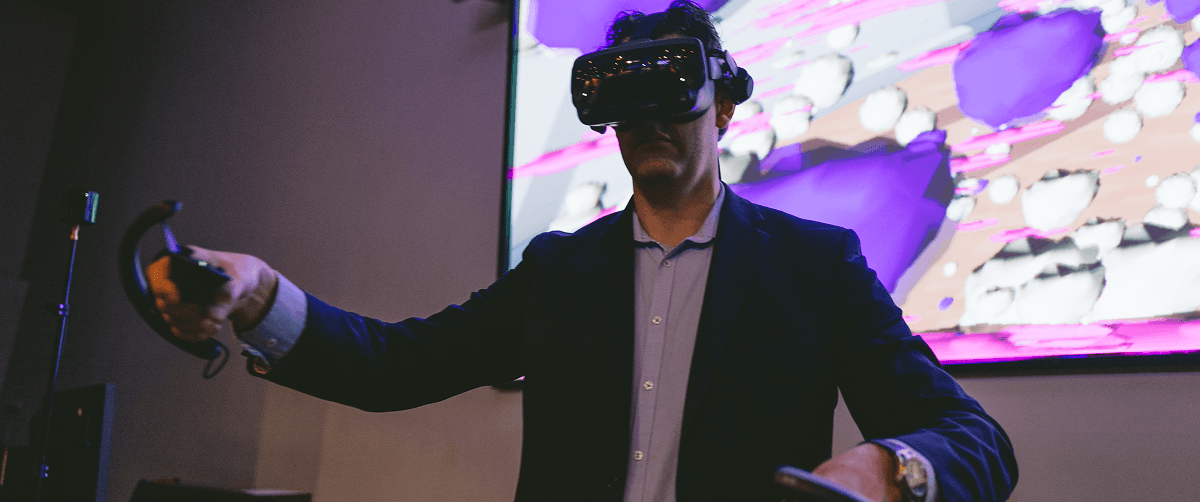
Our research is finding ways to use new technologies that could change the way patients are treated in the future. From virtual reality to machine learning, our researchers are using exciting techniques to beat cancer.
Professor Freddie Hamdy is a prostate cancer surgeon and researcher in Oxford. He’s testing if new fluorescence and imaging techniques could be used to improve treatment for the disease. The aim is to see if using these techniques before and during surgery can help doctors determine if a tumour is within the prostate, or if it has spread. This could help doctors ensure no tumour is left behind and prevent the cancer returning.
Find out more about his work, and that of researchers like him
In Cambridge, Professor Rebecca Fitzgerald is running a trial called BEST4. The trial will explore if the Cytosponge, a ‘sponge-on-a-string' test for Barrett’s oesophagus developed by Fitzgerald, can prevent deaths from oesophageal cancer when offered as a screening test to people on long-term medication for heartburn – one of the most common Barrett’s oesophagus symptoms. It will also investigate if the Cytosponge, coupled with additional lab biomarker tests, can be used to monitor people already diagnosed with Barrett’s oesophagus instead of endoscopy, an invasive hospital procedure.
Find out more about 'sponge-on-a-string'
Professor Greg Hannon in Cambridge is building 3D tumours containing every cell in them, which can be studied using virtual reality. This new way of studying breast cancer could change how the disease is diagnosed, treated and managed.
Read more about his work on our blog
Over the last 40 years, cancer survival in the UK has doubled. In the 1970s just 1 in 4 people survived their disease for 10 years or more. Today 2 in 4 survive.
We want to accelerate progress and see 3 in 4 patients surviving the disease by 2034.
Browse the latest news, analysis and opinion from Cancer Research UK.
Want to find more information about our research or new technologies?